Experts
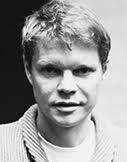
Alexander Baunov
Alexander Baunov is a senior fellow at the Carnegie Endowment for International Peace and an editor in chief.
Before joining Carnegie, Baunov spent five years working as a senior editor at the independent news website Slon.ru, where he worked since its launch. Baunov has written on a wide variety of international and domestic topics, including modern Russian ideology, Russian foreign policy, Russia’s place in the modern world, Ukraine, the European economic crisis, the Arab Spring, and the 2011–2012 Moscow protests.
Before joining Slon.ru, Baunov was a reporter for Russian Newsweek, where he later headed the magazine’s team of international reporters. He has reported from a variety of places, including the polar areas of Norway, South Africa, Japan, and Chile.
Baunov turned to reporting after five years of service at the Russian Foreign Ministry, during which time he spent a number of years posted in Athens. This was in part due to his Master’s degree in Ancient Greek, Latin, and Classical Literature from Moscow State University in 1995.
In 2013, he was on the short list for the PolitProsvet journalism award and headed the award’s selection committee the following year.
Baunov is the author of WikiLeaks: Backdoor Diplomacy (Moscow, 2011) and Mif Tesen (Moscow, 2015). In 2016, he won a prestigious award from the Liberal Mission foundation for Mif Tesen.
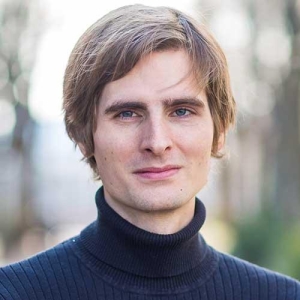
Arvid Bell
Arvid Bell is a lecturer on Government at Harvard University, director of the Negotiation Task Force (NTF) at the Davis Center for Russian and Eurasian Studies, and partner at Negotiation Design & Strategy (NDS), a training, advisory, and research development group. He specializes in complex conflict analysis, negotiation strategy, and international security. Arvid has published research in International Negotiation, Negotiation Journal, and the Peace Report, served as a co-investigator of the Middle East and North Africa Negotiation Report, and is also a fellow with the Institution Quraysh for Law & Policy (iQ), an international negotiation expert with the Conflict Analytics Lab at Queen’s University, and a member of the executive board of the Arms Control Negotiation Academy (ACONA).
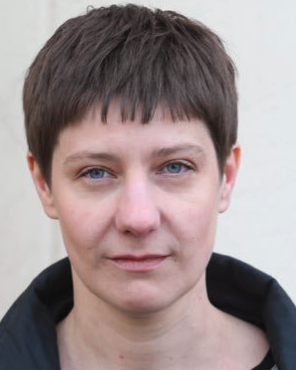
Irina Borogan
Irina Borogan is a Russian investigative journalist, co-founder and deputy editor of Agentura.ru, a watchdog of the Russian secret services’ activities. She chronicled the Kremlin’s campaign to gain control of civil society and strengthen the government’s police services under the pretext of fighting extremism. She is coauthor with Andrei Soldatov of The New Nobility: The Restoration of Russia’s Security State and the Enduring Legacy of the KGB (PublicAffairs, 2010), The Red Web: The Struggle Between Russia’s Digital Dictators and the New Online Revolutionaries (PublicAffairs, 2015) and The Compatriots: The Brutal and Chaotic History of Russia’s Exiles, Émigrés, and Agents Abroad (PublicAffairs, 2019).
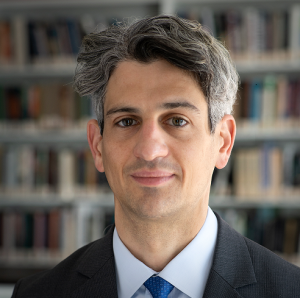
Samuel Charap
Samuel Charap is a senior political scientist at the RAND Corporation. His research interests include the political economy and foreign policies of Russia and the former Soviet states; European and Eurasian regional security; and U.S.-Russia deterrence, strategic stability, and arms control.
From November 2012 until April 2017, Charap was the senior fellow for Russia and Eurasia at the International Institute for Strategic Studies (IISS). Prior to joining the IISS, he served at the U.S. Department of State as senior advisor to the undersecretary for Arms Control and International Security and on the Secretary’s Policy Planning Staff, covering Russia and Eurasia. From 2009 to 2011, Charap was director for Russia and Eurasia at the Center for American Progress.
Charap’s book on the Ukraine crisis, Everyone Loses: The Ukraine Crisis and the Ruinous Contest for Post-Soviet Eurasia (coauthored with Timothy Colton), was published in January 2017. His articles have appeared in the Washington Quarterly, Foreign Affairs, Survival, Current History and several other journals.
Charap was a visiting scholar at the Carnegie Moscow Center and the International Center for Policy Studies (Kyiv), and a Fulbright Scholar at the Moscow State Institute of International Relations. He is fluent in Russian and proficient in Ukrainian. Charap holds a PhD in political science and an MPhil in Russian and East European studies from the University of Oxford, where he was a Marshall Scholar. He received his BA in Russian and Political Science from Amherst College. He is a life member of the Council on Foreign Relations.
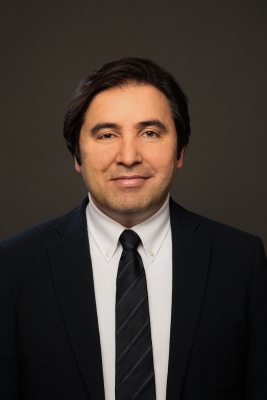
Galip Dalay
Galip Dalay is a fellow at the German Institute for International and Security Affairs (SWP), a doctoral researcher in the Faculty of History at the University of Oxford, associate fellow at Chatham House, and non-resident senior fellow at the Middle East Council on Global Affairs
His current research focuses on the question of regionalism, regional order and governance in the Middle East, Turkish politics and foreign policy, Middle Eastern politics, Turkish - Russian relations, history and politics of Turkish - Western/European relations, and history of post-colonial and post-imperial forms of internationalism. Dalay’s pieces and analysis have appeared on Foreign Affairs, Foreign Policy, Al Jazeera, Project Syndicate, CNN, the National Interest, Newsweek, Le Monde, Open Democracy, Middle East Eye and The World Politics Review.
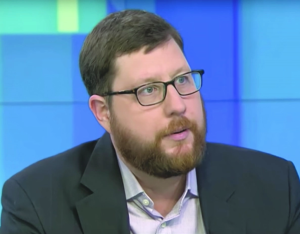
Matthew Duss
Matthew Duss is foreign policy advisor to Sen. Bernie Sanders (I-Vt). From 2014-2016 he served as the president of the Foundation for Middle East Peace. Previously he was a senior policy analyst at the Center for American Progress and director of the Center’s Middle East Progress program.
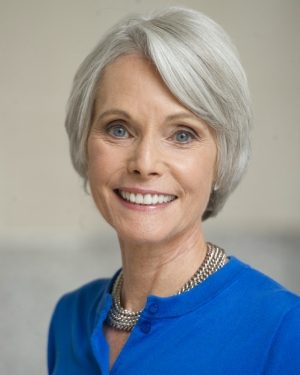
Jill Dougherty
Jill Dougherty is an expert on Russia and the former Soviet Union. In her three-decade career with CNN she served as foreign affairs correspondent, based in Washington, D.C., where she covered the State Department and provided analysis on international issues. Dougherty previously served as U.S. affairs editor for CNN International; managing editor of CNN International Asia/Pacific, based in Hong Kong; and CNN’s Moscow bureau chief and correspondent. From 1991 to 1996 she was CNN White House correspondent, covering the presidencies of George H. W. Bush and Bill Clinton. In 2013-14 she was a fellow at the Shorenstein Center on Media, Politics and Public Policy at Harvard University’s John F. Kennedy School of Government, where she pursued research on Russia’s mass media. Dougherty received her BA degree in Slavic Languages and Literature from the University of Michigan, Ann Arbor and her MA from Georgetown University, where she researched Russia’s soft power diplomacy.
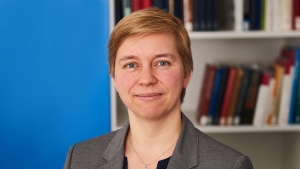
Regina Elsner
Regina Elsner is a theologian and, since September 2017, a researcher at ZOiS. From 1998 to 2005, she studied Catholic Theology in Berlin and Münster. Afterwards, she worked until 2010 as a project coordinator for Caritas Russia in St. Petersburg. From 2010 to 2013, she was a research associate at the Ecumenical Institute of the University of Münster, within the research stream ‘Institutions and Institutional Change in Post-Socialism’. In this context, she focused on the historical and theological aspects of the Russian Orthodox Church’s confrontation with modernity, completing her PhD on this topic in 2016. At ZOiS, Elsner is investigating the dynamics of Orthodox social ethics in Eastern Europe since the dissolution of the Soviet Union with a special focus on peace ethics and gender-related topics. She is co-speaker of the section for religion of the German Association for East European Studies and a member of the PRO ORIENTE Steering Committee for the Orthodox-Catholic Dialogue.
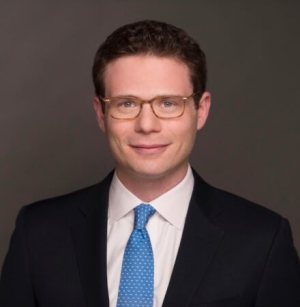
Edward Fishman
Edward Fishman is an Adjunct Senior Fellow at the Center for a New American Security, where he focuses on the intersection of business, economics, and national security. His research interests include sanctions and the evolving ways states use economic and financial power to advance their foreign policy interests. He is concurrently a Nonresident Senior Fellow at the Atlantic Council, where he specializes in Europe and Russia, and an Adjunct Professor of International and Public of Affairs at Columbia University, where he teaches a graduate-level seminar on economic statecraft and strategy.
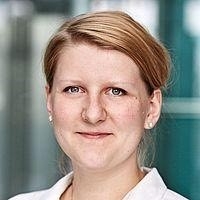
Liana Fix
Dr Liana Fix is a Programme Director at the International Affairs department of Koerber Foundation in Berlin and a former resident fellow in GMF’s Washington office. She is a historian and political scientist, and her work focuses on Russia and Eastern Europe, European security, arms control, and German foreign policy. She has published widely in academia, think tanks, and national and international media, and holds a doctorate degree from the Justus Liebig University Giessen and a Master’s degree from the London School of Economics and Political Science. Her book A New German Power? Germany’s Role in European Russia Policy was published in 2021 by Palgrave Macmillan.
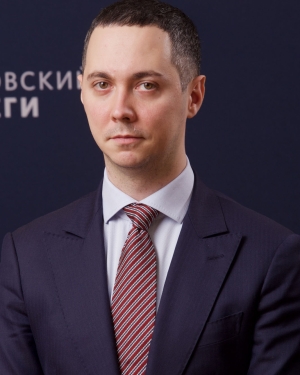
Alexander Gabuev
Alexander Gabuev is a senior fellow at the Carnegie Endowment for International Peace. His research is focused on Russia’s foreign policy, political and ideological trends in China, and China’s relations with its Eurasian neighbors. Gabuev is also a Senior Advisor at Albright Stonebridge Group. Prior to joining Carnegie, Gabuev was a member of the editorial board of Kommersant publishing house and served as deputy editor in chief of Kommersant-Vlast, one of Russia’s most influential newsweeklies. Gabuev started his career at Kommersant in 2007 working as a senior diplomatic reporter, as a member of then president Dmitry Medvedev’s press corps, and as deputy foreign editor for Kommersant. Gabuev has previously worked as a nonresident visiting research fellow at the European Council on Foreign Relations (ECFR) and taught courses on Chinese energy policy and political culture at Moscow State University. In April-June 2018, Gabuev was a visiting scholar at Fudan University (Shanghai, China), and was teaching courses on Sino-Russian relations. Gabuev is a Munich Young Leader of Munich International Security Conference and a member of Council on Foreign and Defense Policy (Russia).
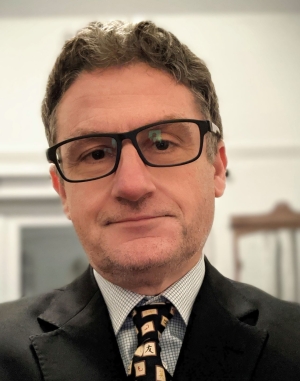
Mark Galeotti
Dr Mark Galeotti is one of the leading experts in Russian politics and security, especially as relates to issues of non-military conflict, intelligence activity and criminality. Based in London, he heads the Mayak Intelligence consultancy firm, as well as being an Honorary Professor at University College London. He read history at Robinson College, Cambridge, and took his doctorate in politics at the LSE. He has been Head of History at Keele University, Professor of Global Affairs at New York University, a visiting professor at Rutgers-Newark (Newark), Charles University (Prague) and MGIMO (Moscow), and a senior research fellow at the Foreign & Commonwealth Office. He consults with clients from the UK government and NATO to NGOs and blue-chip corporations. A prolific author, his most recent and forthcoming books include The Vory: Russia’s super mafia (Yale, 2018), We Need To Talk About Putin (Ebury, 2019), The Weaponisation of Everything (Yale, 2022) and Putin’s Wars (Bloomsbury, 2022).
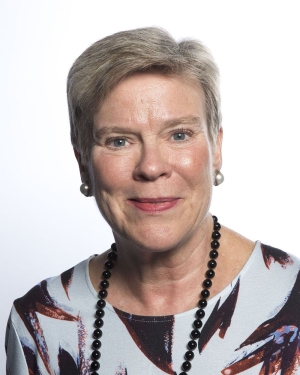
Rose Gottemoeller
Rose Gottemoeller is a distinguished arms-control expert with decades of service in the U.S. government in the Departments of State and Energy as well as the National Security Council. Gottemoeller was also the chief U.S. negotiator of the 2010 New Strategic Arms Reduction Treaty (New START), which was signed by Presidents Barack Obama and Dmitry Medvedev on April 8, 2010. Currently, Gottemoeller is the Steven C. Hazy Lecturer at the Freeman Spogli Institute, Center for International Security and Cooperation at Stanford University. She served as NATO deputy secretary-general from October 2016 to October 2019. For the five years prior, she served as undersecretary for arms control and international security at the U.S. Department of State. Previously, she was a senior associate with the Carnegie Endowment for International Peace, with joint appointments to the Nonproliferation and Russia programs. She served as the director of the Carnegie Moscow Center in 2006-2008. From 1998 to 2000, at the Department of Energy, she served as deputy undersecretary for defense nuclear nonproliferation and as assistant secretary and director for nonproliferation and national security, where she was responsible for all nonproliferation cooperation with Russia and the Newly Independent States. From 1993 to 1994, she served on the National Security Council staff as director for Russia, Ukraine, and Eurasia Affairs, with responsibility for nuclear threat reduction in Russia, Ukraine, Kazakhstan, and Belarus. Fluent in Russian, Gottemoeller has also worked at the International Institute for Strategic Studies in London, as a social scientist at the RAND Corporation, and as a Council on Foreign Relations international affairs fellow, and has taught on Soviet military policy and Russian security at Georgetown University.
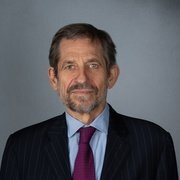
Thomas Graham
Thomas E. Graham is a distinguished fellow at the Council on Foreign Relations. He is a cofounder of the Russian, East European, and Eurasian studies program at Yale University and sits on its faculty steering committee. He is also a research fellow at the MacMillan Center at Yale, where he teaches a course on U.S.-Russian relations. Graham was special assistant to the president and senior director for Russia on the National Security Council staff from 2004 to 2007, during which he managed a White House-Kremlin strategic dialogue. He was director for Russian affairs on the staff from 2002 to 2004.
Graham was a Foreign Service officer for fourteen years. His assignments included two tours of duty at the U.S. Embassy in Moscow in the late Soviet period and in the middle of the 1990s during which he served as head of the political internal unit and acting political counselor. Between tours in Moscow, he worked on Russian and Soviet affairs on the policy planning staff at the U.S. Department of State and as a policy assistant in the office of the under secretary of defense for policy.
Graham serves on the Kennan council of the Kennan Institute of the Wilson Center and on the advisory board of Russia Matters, a project of the Harvard Kennedy School’s Belfer Center for Science and International Affairs with the goal of enhancing the understanding of Russia among policymakers and the interested public. He also serves on the editorial board of the US-Canada Journal of the USA-Canada Institute of the Russian Academy of Sciences.
Graham holds a BA in Russian Studies from Yale University, an MA in History, and a PhD in Political Science from Harvard University.
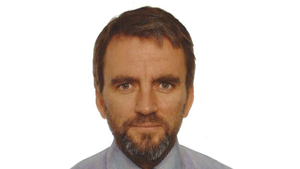
Hans Gutbrod
Hans Gutbrod’s primary interest at the Center for Peace and Conflict Studies at the School of Diplomacy and International Relations of Seton Hall University is to develop the concept of an Ethics of Political Commemoration, as a framework for making memory politics more constructive and sustainable. In this work, he draws on the extensive Just War tradition of Thomas Aquinas, to provide a comprehensive setting for various contemporary debates. Hans works as an Associate Professor at Ilia State University in Tbilisi, Georgia, and has done extensive research and analysis in the Caucasus region since 1999. He holds a Ph.D. in International Relations from the London School of Economics.
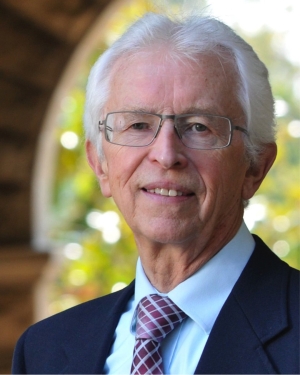
Siegfried S. Hecker
Dr. Hecker is Professor (Research) Emeritus in the Department of Management Science and Engineering, and Senior Fellow Emeritus of the Freeman Spogli Institute for International Studies and the Center for International Security and Cooperation, Stanford University. He is also director emeritus at the Los Alamos National Laboratory, where he served as director from 1986-1997 and senior fellow until July 2005. He joined the Los Alamos National Laboratory as technical staff member in 1973, following a postdoctoral assignment there in 1968-1970 and a summer graduate student assignment in 1965. He served as chairman of the Center for Materials Science and division leader of the Materials Science and Technology Division before becoming director. Dr. Hecker’s research interests include nuclear weapon policy, nuclear security, cooperative nuclear threat reduction and the future of global nuclear energy. His current interests also include the challenges of nuclear Russia, China, India, Pakistan, North Korea, and the nuclear aspirations of Iran.
Over the past three decades, Dr. Hecker has fostered cooperation with the Russian and Chinese nuclear laboratories to enhance safety and security of their nuclear assets. He is the editor of Doomed to Cooperate (2016), two volumes documenting the history of Russian-U.S. laboratory-to-laboratory cooperation since 1992. He is a member of the National Academy of Engineering, Foreign Member of the Russian Academy of Sciences, Fellow of the American Physical Society, Fellow of the TMS (Minerals, Metallurgy and Materials Society), Fellow of the American Society for Metals, Fellow of the American Academy of Arts and Sciences and Fellow of the American Association for the Advancement of Science.
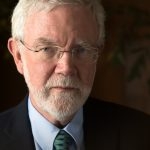
David Holloway
Dr. Holloway is the Raymond A. Spruance Professor of International History Emeritus at Stanford University. He was the co-director of the Center for International Security and Cooperation (CISAC) at Stanford and the director of the Freeman Spogli Institute of International Studies. He has written about the history of nuclear weapons with a focus on the Soviet Union. His book, Stalin and the Bomb: The Soviet Union and Atomic Energy, 1939-1956, was selected by the New York Times Book Review as one of the best books of 1994. It was published in Russia in 1997.
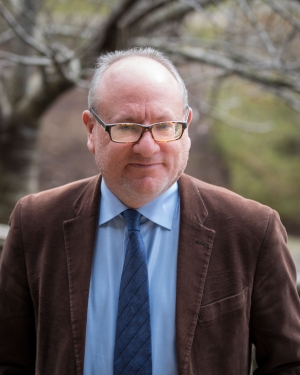
Michael Kimmage
Michael Kimmage is a professor of history at the Catholic University of America. From 2014 to 2017, he served in the Secretary’s Office of Policy Planning at the U.S. Department of State, where he held the Russia/Ukraine portfolio. His latest book was published in April 2020 with Basic Books and is titled The Abandonment of the West: the History of an Idea in American Foreign Policy.
Michael Kimmage specializes in the history of the Cold War, in twentieth-century U.S. diplomatic and intellectual history and in the U.S.-Russian relations since 1991. Professor Kimmage has published four books to date: The Conservative Turn: Lionel Trilling, Whittaker Chambers and the Lessons of Anti-Communism (Harvard University Press, 2009); In History’s Grip: Philip Roth’s Newark Trilogy (Stanford University Press, 2012); Wolfgang Koeppen’s Journey through America (Berghahn, 2012), a German-language travelogue published in 1959 and translated by Professor Kimmage; and The Abandonment of the West: the History of an Idea in American Foreign Policy (Basic Books, 2020). Professor Kimmage has written articles and book reviews for the New York Times, Washington Post, New Republic, Frankfurter Allgemeine Zeitung, the Jewish Review of Books, and the Los Angeles Review of Books. He has been a visiting professor at the Ludwig Maximilian University in Munich and at Vilnius University in Lithuania.
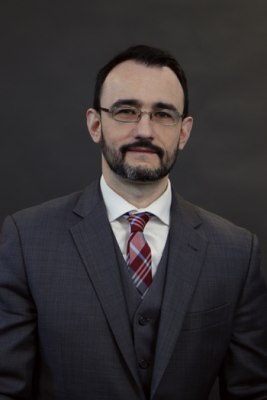
Michael Kofman
Michael Kofman serves as Research Program Director in the Russia Studies Program at CNA and as a Fellow at the Kennan Institute, Woodrow Wilson International Center in Washington, DC. His research focuses on the Russia and the former Soviet Union, specializing in Russian armed forces, military thought, capabilities, and strategy. Previously, he served as a Program Manager and subject matter expert at National Defense University, advising senior military and government officials on issues in Russia and Eurasia. Mr. Kofman is also a Senior Editor at War on the Rocks, where he regularly authors articles on strategy, the Russian military, Russian decision-making, and related foreign policy issues.
Mr. Kofman has published numerous articles on the Russian armed forces, security issues in Russia/Eurasia, and analyses for the US government. He holds an MA in International Security from the Edmund A. Walsh School of Foreign Service at Georgetown University.
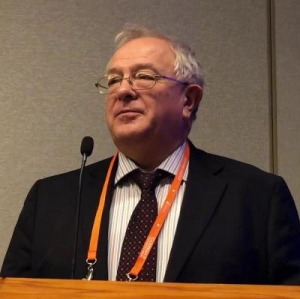
Nikolay Koposov
Nikolay Koposov is a Distinguished Professor of the Practice in the School of History and Sociology and the School of Literature, Media, and Communication, Ivan Allen College of Liberal Arts, Georgia Institute of Technology. Prior to joining the faculty at Georgia Tech, he worked at Emory University, Johns Hopkins University, Helsinki University (Finland), and École des hautes études en sciences sociales (France). In 1998-2009, he was Founding Dean of Smolny College of Liberal Arts and Sciences, a joint venture of Saint-Petersburg State University (Russia) and Bard College (New York). He specializes in modern European intellectual history, modern France, post-Soviet Russia, historiography, historical memory, and comparative politics of the past. He has authored six books including Memory Laws, Memory Wars: The Politics of the Past in Europe and Russia (Cambridge University Press, 2017) and De l’imagination historique (Éditions de l’ÉHÉSS, 2009), and edited four collective volumes and translations. His works have been published in English, French, German, Italian, Japanese, Polish, Russian, Spanish, and other languages. His lectures were invited by Woodrow Wilson Center, Princeton University, Harvard University, Columbia University, Cornell University, George Washington University, the universities of Paris, Geneva, Strasbourg, Vienna, Tokyo, and Kyoto, Ewha University in Seoul, the Ministry of Foreign Affairs of the Republic of Korea, Hebrew University in Jerusalem, Ukrainian Catholic University in L’viv and other schools. He participated in expert groups on the politics of historical memory coordinated by the International Holocaust Remembrance Alliance, the US Holocaust Memorial Museum, Jacob Blaustein Institute for the Advancement of Human Rights, the International Federation for Human Rights, and Körber Foundation (Germany).
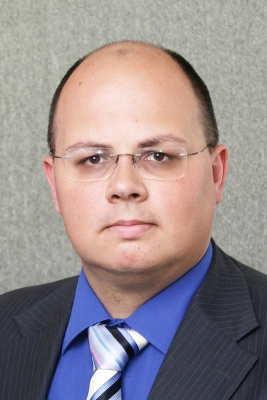
Nikolay Kozhanov
Nikolay Kozhanov is a Research Associate Professor at the Gulf Studies Center of Qatar University. His research focuses on the geopolitics of Gulf energy, Russian foreign policy in the Middle East, as well as Iran’s economy and international relations. Dr. Kozhanov has been a visiting fellow at a number of leading international think-tanks including Chatham House, the Washington Institute for Near East Policy, and Carnegie Moscow Center. Nikolay holds a PhD in international economics and economic security from St. Petersburg State University (2010).
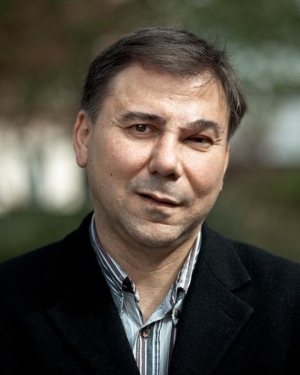
Ivan Krastev
Ivan Krastev is the chairman of the Centre for Liberal Strategies and permanent fellow at the Institute for Human Sciences, IWM Vienna. He is a founding board member of the European Council on Foreign Relations, a member of the board of trustees of The International Crisis Group and is a contributing opinion writer for the New York Times. His book, coauthored with Stephen Holmes, The Light that Failed: A Reckoning (Allen Lane, 2019) won the 30th Annual Lionel Gelber Prize. He is the author of After Europe (UPenn Press, 2017), Democracy Disrupted. The Global Politics on Protest (UPenn Press, 2014) and In Mistrust We Trust: Can Democracy Survive When We Don’t Trust Our Leaders? (TED Books, 2013). Ivan Krastev is the winner of the Jean Améry Prize for European Essay Writing 2020. His latest book, Is it Tomorrow, Yet? How the Pandemic Changes Europe, was published in more than 20 languages in June 2020 and is forthcoming in English in October 2020 from Penguin.
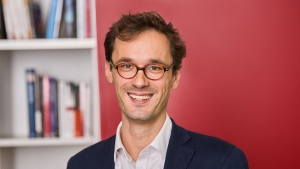
Félix Krawatzek
Félix Krawatzek is a political scientist and, since September 2018, a senior researcher at ZOiS, where he coordinates the research cluster Youth in Eastern Europe. He is also an Associate Member of Nuffield College (University of Oxford). His research focuses on post-Soviet politics and European politics more broadly. Félix Krawatzek is particularly interested in the role of youth in politics, the significance of historical representation in political processes, and questions related to migration and transnationalism. Before joining ZOiS, Félix Krawatzek held a British Academy Postdoctoral Fellowship at the University of Oxford’s Department of Politics and International Relations. He finished his doctorate at the University of Oxford and was a visiting fellow at Sciences Po Paris (Centre d’études et de recherches internationales) and at the Minda de Gunzburg Center for European Studies at Harvard University. Félix Krawatzek recently won a European Research Council (ERC) starting grant for his research proposal “Moving Russia(ns): Intergenerational Transmission of Memories Abroad and at Home” (MoveMeRU) which compares the historical memories of migrants and non-migrants across two generations. The project studies the Russian migrant population in a favourable, hostile and neutral reception context, looking at Germany, Estonia and Canada. The project will run over the period of 5 years.
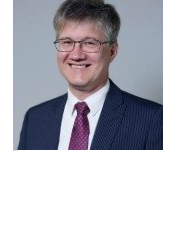
Ivan Kurilla
Dr. Kurilla is a professor at European University at St. Petersburg and specializes in the history of U.S.-Russia relations during the antebellum and Civil War periods of American history, in addition to the use and misuse of history in the contemporary societies. He has authored numerous articles and three monographs on these subjects and others. He is the editor of many collected volumes.
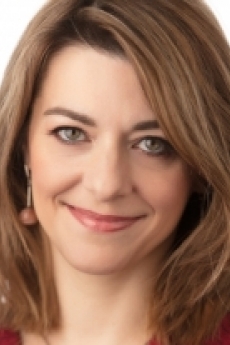
Marlene Laruelle
Marlene Laruelle, Ph.D., is Director and Research Professor at the Institute for European, Russian and Eurasian Studies (IERES), Elliott School of International Affairs, The George Washington University. At IERES she is also Director of the Illiberalism Studies Program, a Co-Director of PONARS (Program on New Approaches to Research and Security in Eurasia), and the founder and Director of the Central Asia Program. Dr. Laruelle received her Ph.D. in history at the National Institute of Oriental Languages and Cultures (INALCO) and her post-doctoral degree in political science at Sciences-Po in Paris. She has widely published on Russia’s ideologies and nationalism, on Russia’s foreign policy and soft power strategies, and has published 10 monographs, the last one being Is Russia Fascist? Unraveling Propaganda East and West (Cornell University Press).
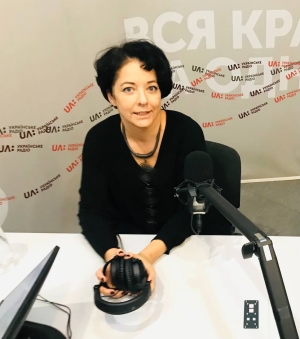
Polina Lavrova
Polina Lavrova is the founder and head of Laurus, a publishing house that promotes the works of Ukrainian and foreign scholars, writers, and poets that prepare the ground for democratic rebirth, peace and reconciliation in the region. The primary mission of the publishing house is to promote humanitarian values and human rights and establish cross-cultural and inter-institutional cooperation. In addition to publishing activities, Laurus is an active participant in cultural events and projects. The publishing house is a permanent information partner of the concert seasons of the Academic Symphony Orchestra of Ukraine, an organizer of literary evenings and a co-organizer of various projects. Polina is included in the top 100 most influential people of culture according to the Novoye Vremya magazine (2015) and is a laureate of more than a dozen Ukrainian cultural awards.
Continue reading here
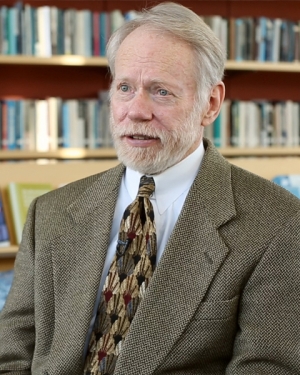
Robert Legvold
Dr. Legvold is Marshall D. Shulman Professor Emeritus in the Department of Political Science at Columbia University, where he specialized in the international relations of the post-Soviet states. He was director of the Harriman Institute, Columbia University, from 1986 to 1992. Dr. Legvold’s areas of particular interest are the foreign policies of Russia, Ukraine, and the other new states of the former Soviet Union, U.S. relations with the post-Soviet states, and the impact of the post-Soviet region on the international politics of Asia and Europe. He is currently co-director of the American Academy of Arts and Sciences project, “Meeting the Challenges of a New Nuclear Age,” and co-director of the joint Moscow State University (MSU)-Moscow State Institute of International Relations (MGIMO) MA program, “Public Policy in the Post-Soviet Space.” His most recent book is Return to Cold War (Polity, 2016). He is a fellow of the American Academy of Arts and Sciences and a foreign member of the Russian Academy of Social Sciences.
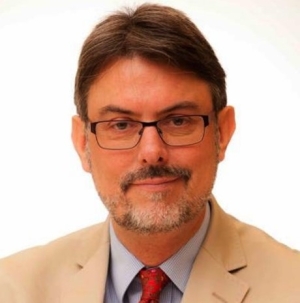
Anatol Lieven
Anatol Lieven is a senior fellow for Russia and Europe at the Quincy Institute for Responsible Statecraft in Washington, DC. He was a professor at Georgetown University in Qatar from 2014 to 2021. He is a member of the academic board of the Valdai discussion club in Russia. He also serves on the advisory committee of the South Asia Department of the British Foreign and Commonwealth Office. He holds a BA and PhD from Cambridge University in England.
His latest book, Climate Change and the Nation State, was published in 2020. An updated paperback edition is appearing in September.
From 1985 to 1998, Anatol Lieven worked as a British journalist in South Asia, the former Soviet Union, and Eastern Europe, and is author of several books on Russia and its neighbors, including Ukraine and Russia: A Fraternal Rivalry.
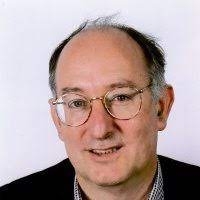
Dominic Lieven
Professor Dominic Lieven graduated first in Cambridge University’s class of 1973 with a BA in History and was a Kennedy Scholar at Harvard in 1973-1974. Subsequently, he has been inter alia a Humboldt Fellow in Germany and a visiting professor at Tokyo University and Harvard. He received his PhD from the School of Slavonic Studies at University College London in 1978.
Professor Lieven was a lecturer, senior lecturer and professor at the London School of Economics (LSE; 1978-2011). He became a fellow of the British Academy in 2001. He was head of the Department of Government from 2001 to 2004 and head of the Department of International History from 2009 to 2011. From there he was a senior research fellow at Trinity College, Cambridge (2011-2019) and has been an honorary fellow since 2019. In 2014, he was awarded the Order of Friendship by the Russian Federation.
He is currently a visiting professor in the Department of International History at LSE. Professor Lieven is also the chair of the board of the Paulsen Programme at LSE, hosted by the Department of International History at LSE.
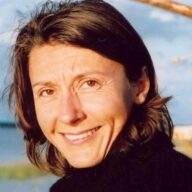
Kadri Liik
Kadri Liik is a senior policy fellow at the European Council on Foreign Relations. Her research focuses on Russia, Eastern Europe, and the Baltic region. Before joining ECFR in October 2012, Liik was the director of the International Centre for Defence Studies in Estonia from 2006 until 2011, where she also worked as a senior researcher and director of the Centre’s Lennart Meri Conference. Throughout the 1990s, Liik worked as a Moscow correspondent for several Estonian daily papers, including the highest-circulation daily in Estonia, Postimees, as well as Eesti Päevaleht and the Baltic News Service. In 2002, she became the foreign news editor at Postimees. In 2004, she left to become editor-in-chief at the monthly foreign affairs magazine, Diplomaatia. She was also the host of “Välismääraja”, a current affairs talkshow at Raadio Kuku in Tallinn. Liik holds a BA in Journalism from Tartu University (Estonia) and an MA in International Relations specialising in diplomacy from Lancaster University.
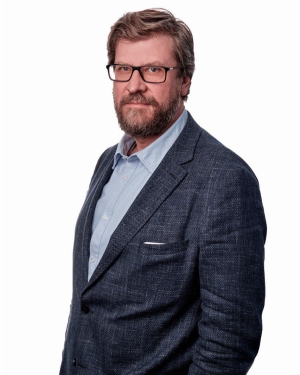
Fedor Lukyanov
Fedor Lukyanov is chairman of the Council on Foreign and Defense Policy, the oldest Russian NGO providing expertise in the foreign policy field, and editor-in-chief of Russia in Global Affairs, a journal published in Russian and English with participation of Foreign Affairs. As head of Russia in Global Affairs since its founding in 2002, he greatly contributed to making this journal Russia’s most authoritative source of expert opinion on global development issues. He is also a research director at the International Valdai discussion club and a member of the Presidium of the Russian International Affairs Council (RIAC). Fedor Lukyanov is a research professor at the Higher School of Economics in Moscow. Mr. Lukyanov worked as a correspondent, commentator, and editor for numerous Russian print and electronic media. Now he is one of the most known commentators of Russian foreign policy worldwide. In 2011, he received an award from the Russian government for his contribution to international journalism. Previous positions: editor, then senior editor, Department for Broadcasting to Northern Europe, International Radio Moscow (Voice of Russia, 1990–1993); correspondent, international desk, Segodnya newspaper (1994–1997); editor, international desk, Vremya MN newspaper (1997–2000); editor, international desk and deputy editor-in-chief of Vremya Novostei newspaper (2000–2002). He graduated from Moscow State University in 1991 with a degree in German language and literature.
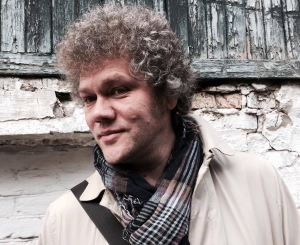
Oleksii Nikitin
Oleksii Nikitin (b. in 1967, Kyiv) a writer of prose, a member of the Ukrainian center of the International PEN-club.
Nikitin graduated from the Physics Department of Kiev State University in 1990. He worked as an engineer. Then headed an enterprise, which specialized in development and production of polymers. Took part in developing the dust suppression alarm system for “Object Ukrytie” at the Chernobyl nuclear reactor station.
Oleksii Nikitin is the author of several novels, a number of short prose pieces, and numerous short stories. His first publications in Kiev’s periodicals began appearing in the early 90’s. In 2000, his first collection of short stories “Рука птицелова/The Bird catcher’s hand” was awarded the Korolenko prize of the National writers union of Ukraine, for the best Ukrainian prose written in Russian. In 2014 a novel “Victory Park” by Oleksii Nikitin was awarded the “Russian Prize”. That distinction is awarded to extraordinary prose works, written in Russian by the authors not living in Russia.
Oleksii Nikitin’s novels have been translated and published in Ukraine, Russia, United Kingdom, Italy, Switzerland and the United States.
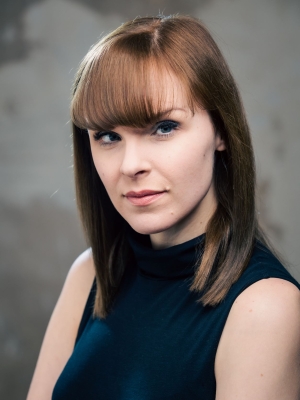
Hanna Notte
Hanna Notte is a senior research associate at the Vienna Center for Disarmament and Non-Proliferation, where she focuses on Russian foreign policy in the Middle East, WMD arms control and nonproliferation in the Middle East, and Russia-West relations. She previously served as a non-resident scholar with the James Martin Center for Nonproliferation Studies (CNS) and as senior political officer with the Shaikh Group, a non-profit consultancy focused on Track II diplomacy and conflict mediation in the Middle East. She supported the organization’s engagement with Russia related to the “Syria Track II Dialogue Initiative” and also worked on other Track II dialogues related to the broader region. Hanna holds a DPhil in International Relations from the University of Oxford (St. Antony’s College), where she also received an MPhil in 2014. She spent a year between 2015-2016 in Moscow on an Alfa Fellowship with the Institute of Oriental Studies and the Carnegie Moscow Center. Other visiting research positions have included the IISS’ Middle East office in Manama, Bahrain, and the Konrad-Adenauer-Foundation’s Syria/Iraq office in Beirut, Lebanon. Hanna holds a BA in Social and Political Sciences from the University of Cambridge and worked at Goldman Sachs’ London offices as a strategic equity analyst from 2010-2012. She has lectured on Russian foreign policy in the Middle East, including at the Higher School of Economics in Moscow, the American University of Paris, and the Middlebury Institute of International Studies at Monterey, and is regularly invited to speak at international events and conferences on the subject. She is a German national who speaks Russian, Arabic, and French.
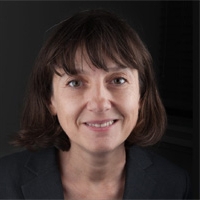
Olga Oliker
Olga Oliker is Program Director for Europe and Central Asia at International Crisis Group in Brussels and leads the organization’s research, analysis, policy prescription and advocacy in and about Russia, Europe, Türkiye, the Caucasus, and Central Asia. Oliker’s own research interests center on the foreign and security policies of Russia, Ukraine, and the Central Asian and Caucasian successor states to the Soviet Union, domestic politics in these countries, U.S. policy towards the region, and nuclear weapon strategy and arms control.
Prior to joining the International Crisis Group, Oliker directed the Russia and Eurasia Program at the Center for Strategic and International Studies and held various research and management roles at the RAND Corporation, including as Director of the Center for Russia and Eurasia. Early in her career, she served at the U.S. Department of Defense. Oliker holds a Ph.D. in political science from the Massachusetts Institute of Technology, an M.P.P. from the Harvard University Kennedy School of Government, and a B.A. from Emory University.
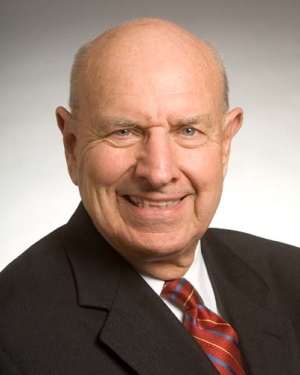
Thomas Pickering
Ambassador Tom Pickering is vice chair of Hills & Company. Tom served as undersecretary of state for Political Affairs under President Clinton and as U.S. ambassador to Russia, India, Israel, El Salvador, Nigeria, and Jordan. He was the U.S. ambassador to the United Nations in the first Bush Administration, and held positions including assistant secretary of state for the Bureau of Oceans, Environmental and Scientific Affairs, and special assistant to Secretaries of State William Rogers and Henry Kissinger. After government service, Tom joined the Boeing Company as senior vice president of International Relations and led its transition to a global organization. He chairs or serves on many nonprofit boards, including the International Crisis Group, and as chairman of the board of the American Academy of Diplomacy. Tom speaks French, Spanish, and Swahili fluently and also Arabic, Hebrew, and Russian.
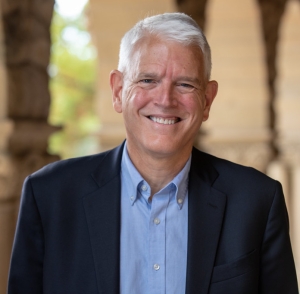
Steven Pifer
Steven Pifer is a William J. Perry Fellow at the Center for International Security and Cooperation at Stanford and a nonresident senior fellow with the Brookings Institution. He focuses on nuclear arms control, Ukraine, Russia and European security. A retired Foreign Service officer, his more than 25 years with the Department of State included assignments as deputy assistant secretary with responsibilities for Russia and Ukraine, U.S. ambassador to Ukraine, and special assistant to the President and senior director for Russia, Ukraine and Eurasia on the National Security Council. He also served at the U.S. embassies in Warsaw, Moscow and London as well as with the U.S. delegation to the negotiation on intermediate-range nuclear forces in Geneva. He is author of The Eagle and the Trident: U.S.-Ukraine Relations in Turbulent Times.
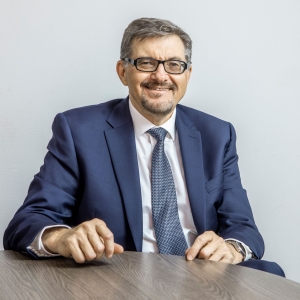
Serhii Plokhii
Serhii Plokhii is the Mykhailo Hrushevsky Professor of Ukrainian History and the director of the Ukrainian Research Institute at Harvard University. A leading authority on Ukraine, Russia, and Eastern Europe, he has published extensively on the international history of World War II and the Cold War. His books won numerous awards, including the Lionel Gelber Prize for the best English-language book on the international relations and the Ballie Gifford Prize for Non-Fiction (UK). His new book, Atoms and Ashes: A Global History of Nuclear Disasters was released by W.W. Norton in May 2022.
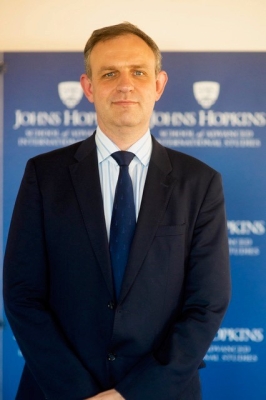
Sergey Radchenko
Sergey Radchenko is the Wilson E. Schmidt Distinguished Professor at the Johns Hopkins School of Advanced International Studies. He has written extensively on the Cold War, nuclear history, and on Russian and Chinese foreign and security policies. He has served as a Global Fellow and a Public Policy Fellow at the Woodrow Wilson Centre and as the Zi Jiang Distinguished Professor at East China Normal University (Shanghai). Professor Radchenko’s books include Two Suns in the Heavens: the Sino-Soviet Struggle for Supremacy (Wilson Center Press & Stanford UP, 2009) and Unwanted Visionaries: the Soviet Failure in Asia (Oxford UP, 2014). Professor Radchenko is a native of Sakhalin Island, Russia, was educated in the US, Hong Kong, and the UK, where he received his PhD in 2005 (LSE). Before he joined SAIS, Professor Radchenko worked and lived in Mongolia, China, and Wales.
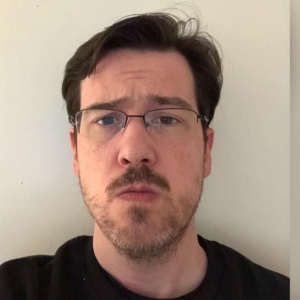
Adam Rawnsley
Adam Rawnsley is a reporter and senior researcher at Rolling Stone where he covers politics and security. His work leverages open source investigative techniques with traditional reporting with a focus on the intersection of technology and security. He was previously a reporter at The Daily Beast and has written for Foreign Policy, Bellingcat, and Wired.
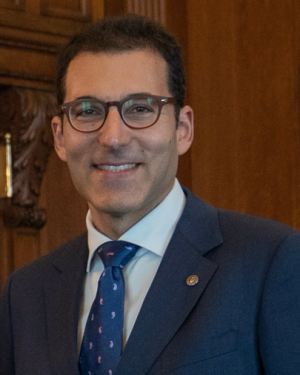
Matthew Rojansky
Matthew Rojansky serves as President and Chief Executive Officer of The U.S. Russia Foundation. Prior to USRF, Rojansky served from 2013 as Director of the Kennan Institute, the premier U.S. center for advanced research on Russia and Eurasia and the oldest and largest regional program within the Congressionally chartered Woodrow Wilson International Center for Scholars. Rojansky is among the most widely recognized and cited U.S. experts on Russia, and has published works on the history and practice of U.S.-Russia relations, bilateral exchanges, and rule of law.
Rojansky also serves as the U.S. Executive Secretary for the Dartmouth Conference, a track-two U.S.-Russian conflict resolution initiative begun in 1960, and has lectured at colleges and universities throughout the United States, Russia and Europe. He is a counselor to the Cooperative Security Initiative, the Aspen Institute Congressional Program, and the Euro-Atlantic Security Leaders Group. Previously, Rojansky was Deputy Director of the Russia and Eurasia Program at the Carnegie Endowment for International Peace, and Executive Director of the Partnership for a Secure America. He has also served as an Embassy Policy Specialist at the U.S. Embassy in Kyiv, Ukraine, a Visiting Scholar in the Research Division at the NATO Defense College, and a Clerk to Judge Charles E. Erdmann on the U.S. Court of Appeals for the Armed Forces. He received his B.A. in history from Harvard College, and his J.D. from Stanford Law School.
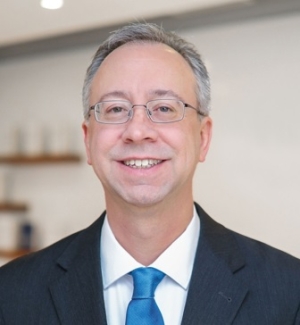
William Ruger
William Ruger is the President of the American Institute for Economic Research.
Ruger earned his Ph.D. in Politics from Brandeis University and an A.B. from the College of William and Mary. His scholarship has appeared in a number of academic journals including International Studies Quarterly, Review of Political Economy, Economics of Governance, Civil Wars, and Armed Forces and Society. His most recent scholarship examines the relationship between military service, combat experience, and civic participation. Ruger is the author of the biography Milton Friedman and co-author of two books on state politics, including Freedom in the 50 States (now in its 6th edition).
Ruger is a veteran of the Afghanistan War and was awarded the Defense Meritorious Service Medal, among other decorations. He remains an officer in the U.S. Navy (Reserve Component). Ruger was nominated to serve as the U.S. Ambassador to the Islamic Republic of Afghanistan and was a prominent advocate for ending America’s participation in the war there. Ruger was appointed by the president to the Fulbright Foreign Scholarship Board in 2020.
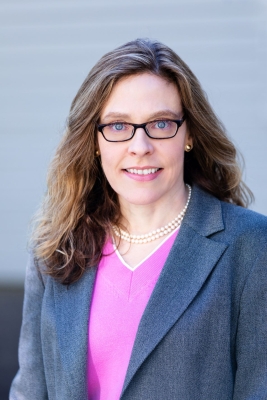
Mary Sarotte
Professor Mary Elise Sarotte is the Marie-Josée and Henry R. Kravis Distinguished Professorship of Historical Studies at the Johns Hopkins School of Advanced International Studies in Washington DC. Her six books include Not One Inch: America, Russia, and the Making of Post-Cold War Stalemate (2021), The Collapse: The Accidental Opening of the Berlin Wall (2014), and 1989: The Struggle to Create Post-Cold War Europe (2009), which were named Financial Times Books of the Year (2009 and 2014), Economist Book of the Year (2014), and Foreign Affairs Book of the Year (2021), among receiving other prizes and awards. Sarotte earned her AB in History and Science at Harvard University and her PhD in History at Yale University. After graduate school, she served as a White House Fellow and subsequently joined the faculty of the University of Cambridge. Sarotte received tenure at Cambridge in 2004 and returned to the United States to teach at University of Southern California as the Dean’s Professor of History before moving to Hopkins. Sarotte is a former Humboldt Scholar, a former member of the Institute for Advanced Study in Princeton, and a member of the Council on Foreign Relations.
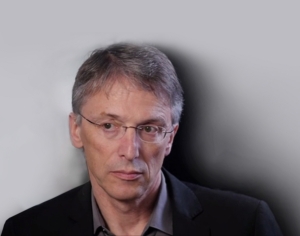
Yuri Slezkine
Yuri Slezkine is a professor of the Graduate School at the University of California, Berkeley; a senior research fellow at St. Edmund College, Oxford; and a member of the American Academy of Arts and Sciences. He has been a fellow at the Hoover Institution, the International Institute at the University of Michigan, the Center for Advanced Study in the Behavioral Sciences, the John Simon Guggenheim Memorial Foundation, and Wissenschaftskolleg zu Berlin. He served as a distinguished visiting professor at Vassar College, an honorary professor at the University of Nottingham, and a visiting professor at the Ludwig-Maximilians University in Munich and Sciences Po in Paris. His book, The Jewish Century (Princeton UP, 2004), has received several awards and has been translated into ten languages. His next book, The House of Government: A Saga of the Russian Revolution (Princeton UP, 2017), was named among the best books of 2017 by the New York Times, Spectator, the Guardian, the Economist, the London Review of Books, and Le Monde, among others, and has been translated into nine languages. His most recent book is a Latvian-language essay entitled Ivar Smilga and the Russian Epilogue of the Latvian Revolution (Rigas Laiks, 2022).
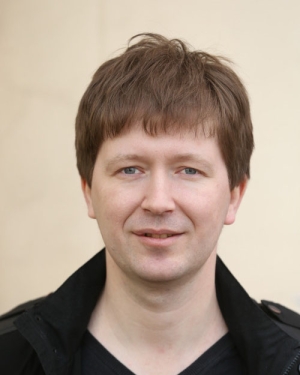
Andrei Soldatov
Andrei Soldatov is a Russian investigative journalist, co-founder, and editor of Agentura.ru, a watchdog of the Russian secret services’ activities. He has been covering security services and terrorism issues since 1999. He is coauthor with Irina Borogan of The New Nobility: The Restoration of Russia’s Security State and the Enduring Legacy of the KGB (PublicAffairs, 2010), The Red Web: The Struggle Between Russia’s Digital Dictators and the New Online Revolutionaries (PublicAffairs, 2015) and The Compatriots: The Brutal and Chaotic History of Russia’s Exiles, Émigrés, and Agents Abroad (PublicAffairs, 2019).
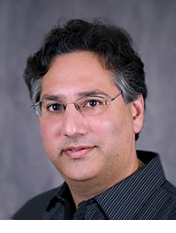
Adam Stulberg
Dr. Stulberg is a Professor and Co-Director of the Center for International Strategy, Technology, and Policy (CISTP) in the Sam Nunn School of International Affairs. He teaches undergraduate and graduate courses on international security, Eurasian politics and security affairs, nuclear nonproliferation, and energy and international security, as well as interdisciplinary courses on science, technology, and international security policy. His current research focuses on energy security dilemmas and statecraft in Eurasia, new approaches to strategic stability and denuclearization of military arsenals, internationalization of the nuclear fuel cycle, counter network warfare, and the implications of emerging technologies for strategic stability and international security.
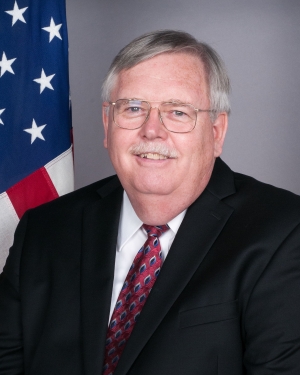
John Tefft
Ambassador John F. Tefft is a retired United States diplomat. He was a career Foreign Service Officer for more than 45 years, completing his service as the U.S. ambassador to the Russian Federation from 2014 to 2017. Prior to that, he served as the U.S. ambassador to Lithuania from 2000 to 2003, ambassador to Georgia from 2005 to 2009, and ambassador to Ukraine from 2009 to 2013. He worked from 2004 to 2005 as the deputy assistant secretary of state for European and Eurasian Affairs responsible for U.S. relations with Russia, Ukraine, Belarus, and Moldova. Ambassador Tefft originally retired from the Foreign Service in September 2013 and served as executive director of the RAND Corporation’s Business Leaders Forum from October 2013 to August 2014 until his recall to duty and confirmation as U.S. ambassador to the Russian Federation.
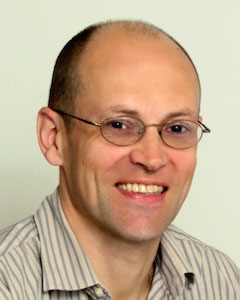
Andrei Tsygankov
Dr. Andrei P. Tsygankov is a professor at the departments of Political Science and International Relations at San Francisco State University. A Russian native, Tsygankov is a graduate of Moscow State University (Candidate of Sciences, 1991) and the University of Southern California (PhD, 2000). He published several books in English and Russian including Anti-Russian Lobby and American Foreign Policy (2009), Russia and the West from Alexander to Putin (2012), and The Strong State in Russia (2014), as well as many journal articles.
Taylor Valley
Taylor is an associate at the Negotiation Task Force at the Davis Center for Russian and Eurasian Studies at Harvard University and a doctoral student in the Department of Political Science at Northeastern University, specializing in International Relations and Comparative Politics. Her research focus is on international affairs, and she wrote her master’s thesis on Russo-Latin American relations. Taylor is also a senior associate with Negotiation Design & Strategy (NDS), a negotiation research and training company. She holds a master’s in Russian Studies from Harvard University and a bachelor’s in Political Science from Miami University.
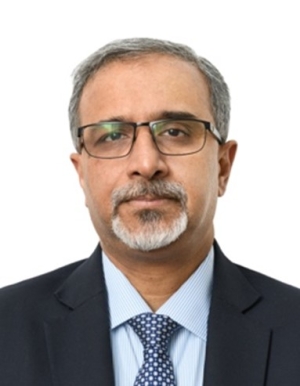
Venkatesh Varma
Ambassador D.B.Venkatesh Varma was a Member of the Indian Foreign Service from 1988 to 2021. During his diplomatic career, he has worked in the Ministry of External Affairs, in the Office of External Affairs Minister and in the Prime Minister’s Office. He served as India’s Ambassador to Conference on Disarmament in Geneva, to the Kingdom of Spain and to the Russian Federation, until October 2021.
He has vast experience in India’s Security and Defence policies, including its nuclear, missile, and space programs. He has more than 12 years of experience in the field of multilateral non-proliferation and disarmament—nuclear, chemical, biological and conventional weapons, having served three postings in the Conference on Disarmament in Geneva. He also served as Joint Secretary in charge of Disarmament and International Security in the Ministry of External Affairs between 2010-2013. He was a member of the UN Group of Government Experts on Missiles and on Disarmament and Nuclear Nonproliferation Education. He was also a Member of the Indian Delegation to the UNGA in 1998-1999, 2003- 2005 and 2008-2016. He has attended 9 Sessions of the UN First Committee and 7 Sessions of the United Nations Disarmament Commission.
Continue reading here
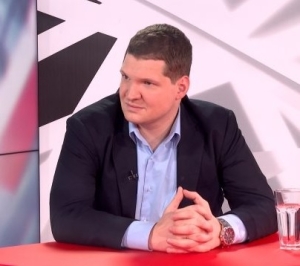
Vuk Vuksanovic
Vuk Vuksanovic is a senior researcher at the Belgrade Centre for Security Policy (BCSP) and an associate at LSE IDEAS, a foreign policy think tank within the London School of Economics and Political Science (LSE). His PhD in international relations from the LSE dealt with the Serbian balancing act between Russia and the West. Before that, he worked at the Serbian foreign ministry and as a political risk consultant. His primary field of research is great power politics with particular emphasis on the Balkans.
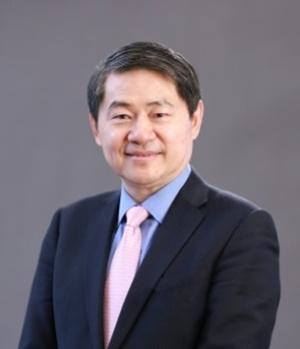
Henry Huiyao Wang
Dr. (Henry) Huiyao Wang is the Founder and President of Center for China and Globalization (CCG), the leading Chinese non-governmental think tank that ranked 64th worldwide in 2020 Global Go to Think Tank Index (GGTTI) by the University of Pennsylvania. In addition, he serves as Vice Chairman of China Association for International Economic Cooperation under the Ministry of Commerce; Vice Chairman of China Talent Research Society under the Ministry of Human Resources and Social Security; Director of Chinese People’s Institute of Foreign Affairs and China National Committee for Pacific Economic Cooperation, both organizations under the supervision of Ministry of Foreign Affairs; and Vice Chairman of China Public Relations Association. He is also Professor and Dean of the Institute of Development at Southwestern University of Finance and Economics and a member of Advisory Committee for Global Competence Development at Tsinghua University. Currently, he is a Steering Committee Member of the Paris Peace Forum and Metropolis International and also sits on the Advisory Board of Duke Kunshan University and Richard Ivey Business School.
Dr. Wang was once in charge of Chinese companies going global at the then Ministry of Foreign Trade and Economic Cooperation, and then worked as Chief Trade Representative for the Quebec Government Office in Hong Kong and Greater China, Managing Director of Asia at SNC-Lavalin, and Vice President at AMEC-AGRA in Canada; He also had extensive experiences in international organizations, having served as Advisory Board Member of UN’s International Organization for Migration (IOM), and an advisory expert for the World Bank, the International Labor Organization (ILO) and the Alliance of Global Talent Organization (AGTO).
Continue reading here
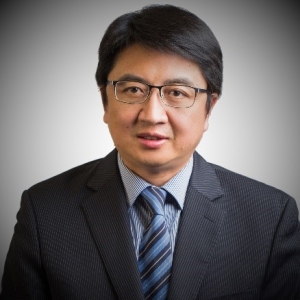
Zheng Wang
Dr. Zheng Wang is the Director of the Center for Peace and Conflict Studies (CPCS) and Professor in the School of Diplomacy and International Relations at Seton Hall University. He is also the Boeing Visiting Chair in International Relations at the Schwarzman College, Tsinghua University. Dr. Wang’s research interests lie in three closely connected areas: (1) identity-based conflicts, nationalism, and the politics of historical memory; (2) peace and conflict management in East Asia, with a special focus on China’s rise and its impact on regional peace and security; (3) foreign-domestic linkages in Chinese politics and foreign relations. Dr. Wang is the author of the book Never Forget National Humiliation: Historical Memory in Chinese Politics and Foreign Relations (Columbia University Press, 2012). This book received International Studies Association’s “Book of the Year Award” in 2013.
Dr. Wang has extensive professional and academic experience in the Asia Pacific region. He has been a Jennings Randolph Senior Fellow at the United States Institute of Peace (USIP); the Dr. Seaker Chan Endowed Visiting Professor at Fudan University in Shanghai, China; a Carnegie Fellow at New America, and a Public Policy Scholar at the Wilson Center. In recent years, Dr. Wang has received multiple highly competitive fellowships and grants from prestigious institutions. The most recent grant award from the Henry Luce Foundation supports him to conduct high-level dialogues and joint research between the US and China over the South China Sea disputes and the U.S.-China relations.
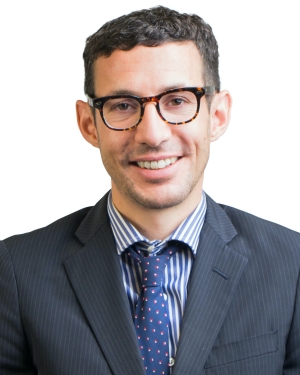
Joshua Yaffa
Joshua Yaffa is a contributing writer for The New Yorker. He is also the author of Between Two Fires: Truth, Ambition, and Compromise in Putin’s Russia, published in January 2020 by Tim Duggan Books and which won the Orwell Prize in 2021. He has also written for the Economist, The New York Times Magazine, National Geographic, Bloomberg Businessweek, The New Republic, and Foreign Affairs. For his work in Russia, he has been named a fellow at New America, a recipient of the American Academy’s Berlin Prize, and a finalist for the Livingston Award. He holds a bachelor’s degree from Georgetown University’s Edmund A. Walsh School of Foreign Service, and master’s degrees in journalism and international affairs from Columbia University, where he was a visiting scholar at the Harriman Institute and taught at the journalism school for several years. He is originally from San Diego, California.
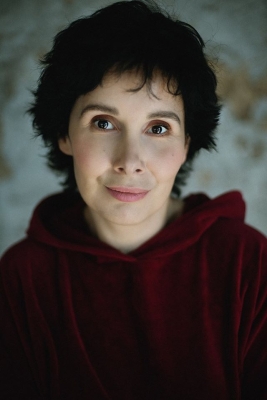
Galina Yuzefovich
Galina Yuzefovich is an internationally renowned Russian literary critic and theoretician. She has been called a leading literary critic whose reviews have a tangible effect on the book market of Russia. She writes weekly columns for the online publication Meduza that has around 15,000 readers. In 2016, Yuzefovich published the collection of articles “Удивительные приключения рыбы-лоцмана” (The Wonderful Adventures of the Pilot Fish). It is a wonderful introduction to contemporary Russian and world literature, and Yuzefovich looks at the significant authors of the 20th and 21st century. She analyzes around a hundred authors in total.
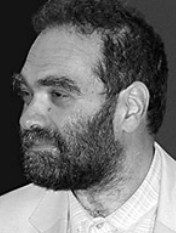
Andrei Zorin
Dr. Andrei Zorin is a professor of Russian and a fellow of New College at Oxford University. He is a member of the editorial boards of the journals New Literary Observer, Slavic Review, and Cahiers du Monde Russe. His areas of specialization are Russian Literature and Russian cultural history, especially of the eighteenth and nineteenth centuries. His research includes Russian literature and culture of the eighteenth through the beginning of the nineteenth centuries in the European context, the cultural history of emotions, and the history of the cultured community in Russia and in the USSR. Dr. Zorin graduated from Moscow State University (1978) and completed his dissertation (1983) and habilitation (2000) also at Moscow State University.
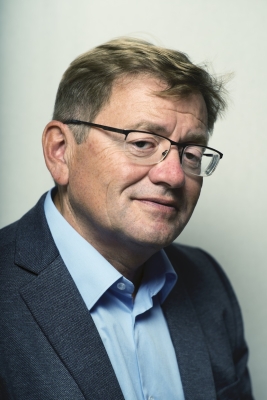
Vladislav Zubok
Vladislav M. Zubok, Professor of International History at the London School of Economics and Political Science. He is a recipient of many fellowships and grants, including John D. and Catherine T. MacArthur Foundation, the Campbell National Fellowship at the Hoover Institution, the Woodrow Wilson Center, and the Paulson Foundation. His books include Inside the Kremlin’s Cold War (with Constantine Pleshakov) that received the Gelber Prize; A Failed Empire: the Soviet Union in the Cold War from Stalin to Gorbachev (University of North Carolina Press, 2007) that was awarded Marshall Shulman Prize; Zhivago’s Children: The Last Russian Intelligentsia (Belknap Press, 2009), The Idea of Russia: the Life and Work of Dmitry Likhachev (I.B.Tauris, 2016), and most recently Collapse: The Fall of the Soviet Union (Yale University Press, 2021). He published widely, including most recently in Diplomatic History, Foreign Affairs, the Wall Street Journal, and Engelsberg Ideas. His engagement in media projects include CNN- Jeremy Isaacs Productions’ “Cold War,” a 24-hour documentary series (1995 –1998).
